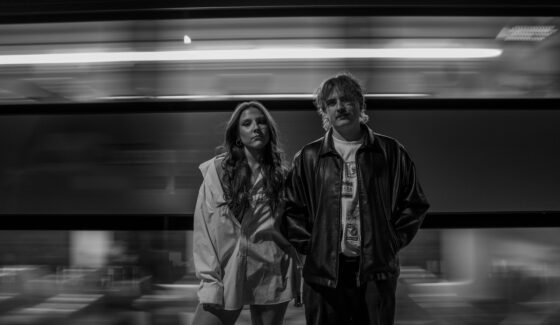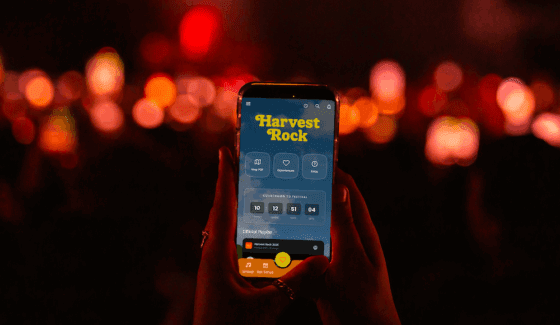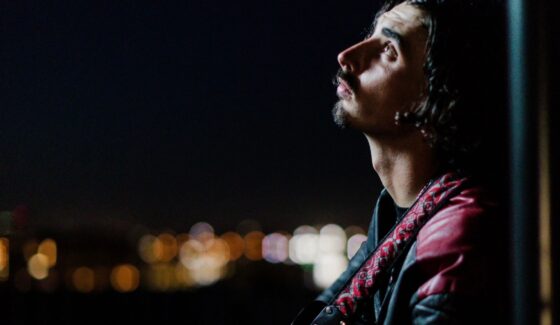Live Review: Sufjan Stevens w/ Ngaiire @ QPAC
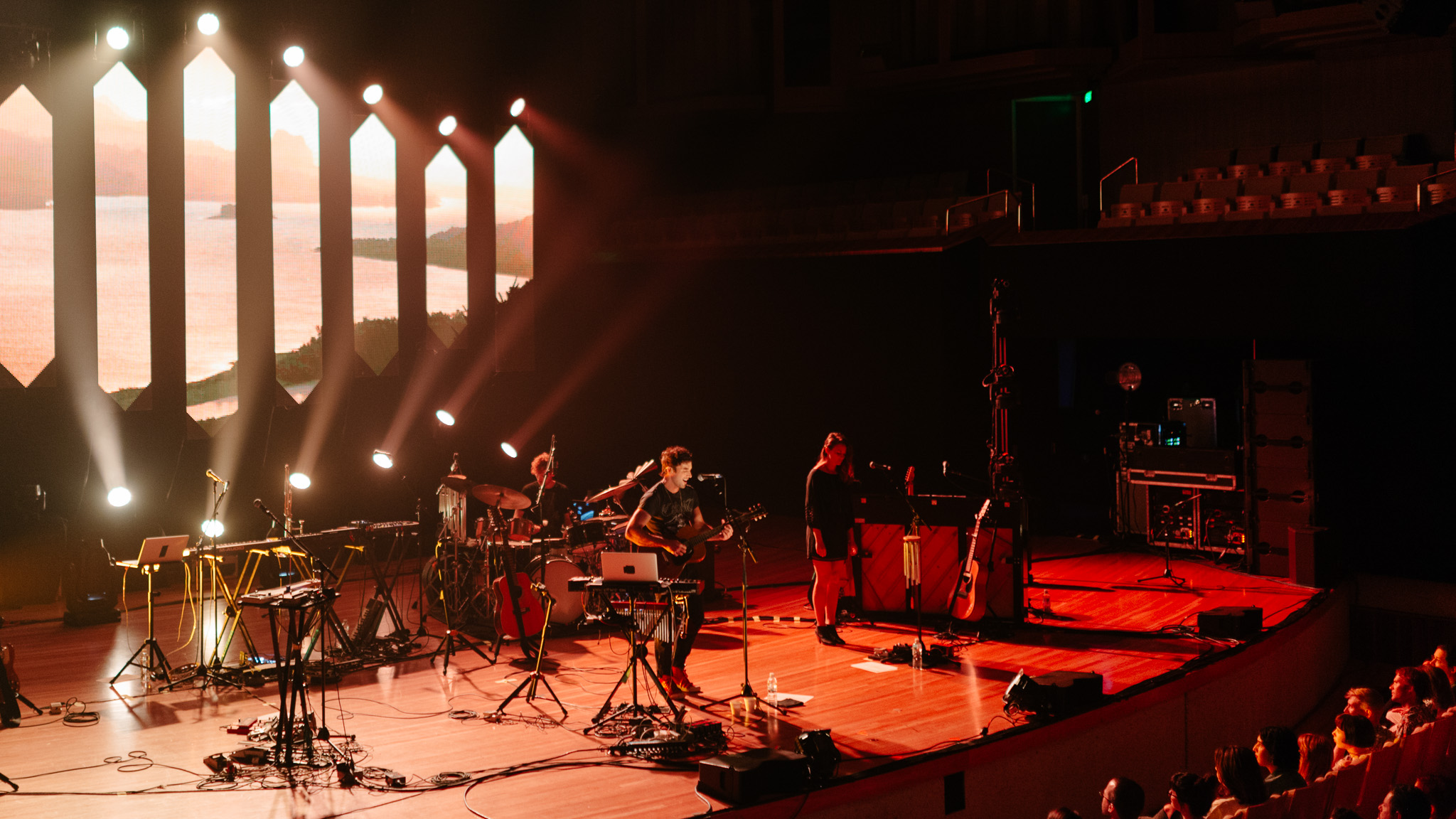
There are times when you go to a gig and it’s a good gig, you dance, you hear some songs you like, you swoon over the frontwoman/man and you leave content with your night. Then there are gigs that change your entire outlook on life, they render you speechless and make you feel almost guilty that you exist in a world where music can be so very beautiful. I’m very happy to report that Sufjan Stevens show at QPAC’s stunning concert hall falls firmly in the latter category.
A wild mane of bleach blond hair only heightened the witchy wonder that Ngaiire and her backing band brought
Papua New Guinean powerhouse Ngaiire began the evening by luring us into a false sense of security with her outrageously impactful vocals. A wild mane of bleach blond hair only heightened the witchy wonder that Ngaiire and her backing band brought to the short but sweet set. Reaching, literally and figuratively, to the heavens during her most recent single Diggin just solidified Ngaiire as not only vocally talented but visually captivating.
The lights dimmed to usher in Stevens two hour extravaganza and there seemed to be a collective and audible gasp when he opened with Redford (For Yia-Yia and Pappou). The rarely heard instrumental track also introduced the absorbing light show going on behind the live action. The building sounds and pulsating lights was only an aperitif for the first act, as the dedicated audience was about to be treated to Stevens heartbreaking 2015 album ‘Carrie and Lowell’ in its entirety.
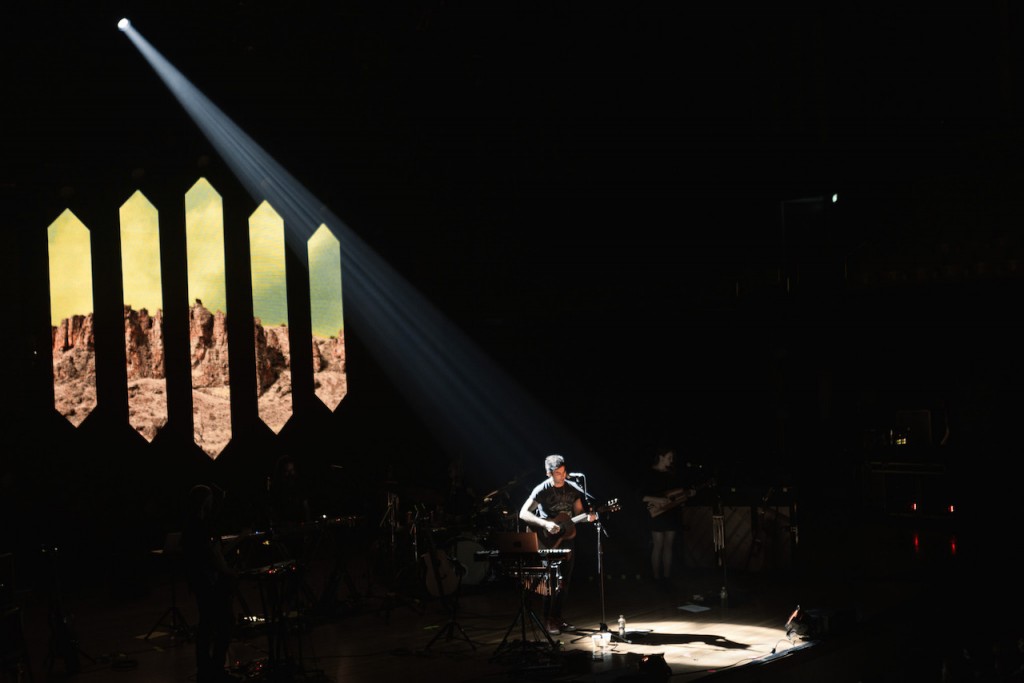
An unbelievable experience from start to finish, Stevens rarely paused to speak other than a reserved greeting. From the raw confessional of No Shade In The Shadow Of The Cross which was accompanied by unnerving home video to the delicate sorrow of Eugene in which a single spotlight illuminated the bittersweet emotion of the lyrics, each and every song that Stevens played was a special peek into his soul.
There was many a damp eye in the house, including my own
The small deviation from ‘Carrie and Lowell’ came in the form of The Owl And The Tanager, a breathtakingly beautiful track that had the room so quiet that you could hear a pin drop. As there was no pins present all that you were able to hear was the intense connection between Stevens and his backing singer (I missed her name but she was a glittering jewel is the crown that was the evening). Together they packed more lamenting emotion into a single wordless musical phrase than most artists have in their entire discography. There was many a damp eye in the house, including my own.
‘Age Of Adez’ glitchtastic track Vesuvius followed, with an explosion of red light and group vocals before the mood was once again calmed with Fourth Of July. Stevens recounted the day his mother passed under a lone spotlight, followed by each member of the backing band being introduced under a spotlight. As Stevens and the band repeated that gut wrenching phrase “We’re all gonna die” the song slowly built to a great, tumultuous, chaotic climax, mirroring the avalanche of confused emotion associated with losing a parent.
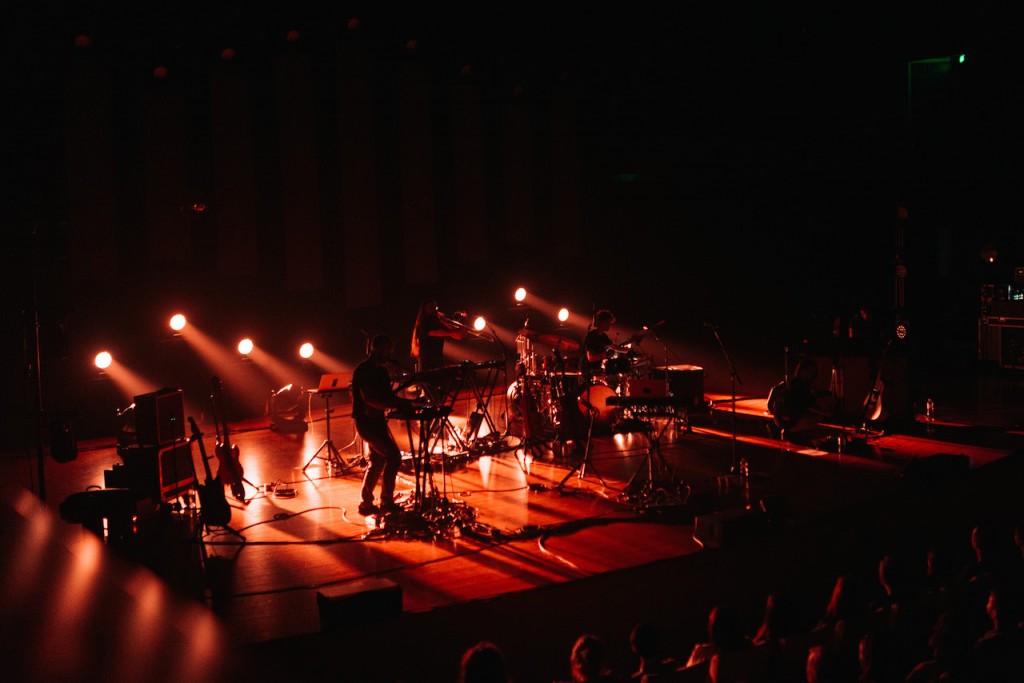
The extended outro of closing song Blue Bucket Of Gold was placed in the masterful hands of the back-up singer, and she crooned to the audience in a darkened room. The sharp, clean lines of the light reflected off a disco ball were the only visual cue to let the audience know they hadn’t transcended to a high plane.
The audience became privy to a lighter side of Stevens as he joked about costume changes, referenced Radiohead and gave gracious thanks to his adoring audience
The lights completely dimmed and after a 10-minute standing ovation, Stevens returned to the stage dressed casually in a bright orange t-shirt and patchwork trousers. This is where the second act of the show began as Stevens and his band huddled around one mic with their acoustic instruments. The audience became privy to a lighter side of Stevens as he joked about costume changes, referenced Radiohead and gave gracious thanks to his adoring audience. If Act One was about the ‘new’ then Act Two was about the ‘old’, as the audience was taken through a mini greatest-hits set.
The nuanced plucked banjo of For the Widows in Paradise, For the Fatherless in Ypsilanti welcomed the more intimate sound of Act Two. The unsettling humanisation of a serial killer sent chills down spines during John Wayne Gacy, Jr. The group camaraderie of Chicago was abundant as Ngaiire was invited back on-stage for the final song of the night. At this point it was difficult not to be stupefied by the two-hour assault of extreme emotion. After another ten-minute standing ovation, the lights returned and it was hard to believe we would once again have to return to the outside world.
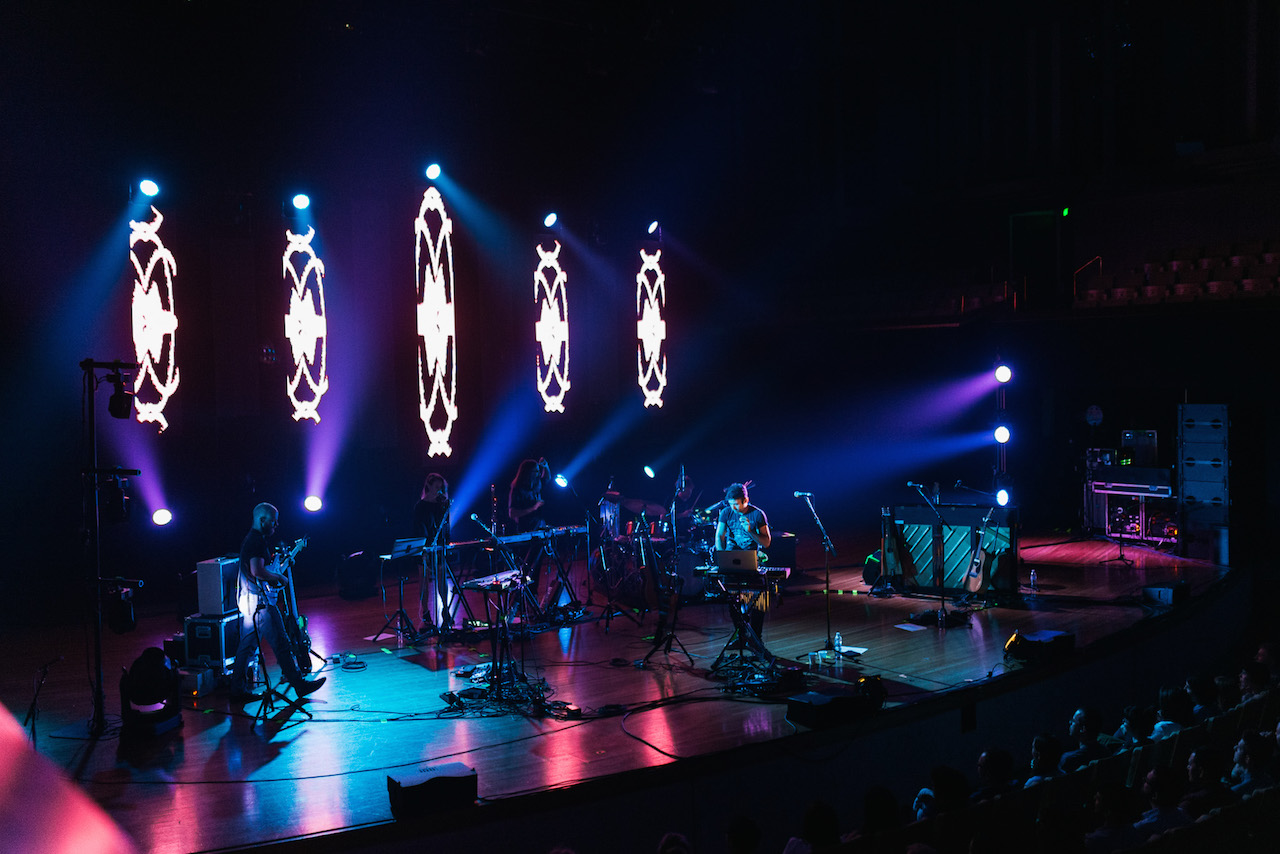
This is where the review should end but I felt it pertinent to share this in a time in which live music is so threatened. During the encore Stevens read from French philosopher Michel de Montaigne, making a point that even the extraordinary becomes ordinary if you see it every day, which is why people can become bored with life. That is why artists like Sufjan Stevens and to an extent all live music is so important, to remind us that the extraordinary still exists.



